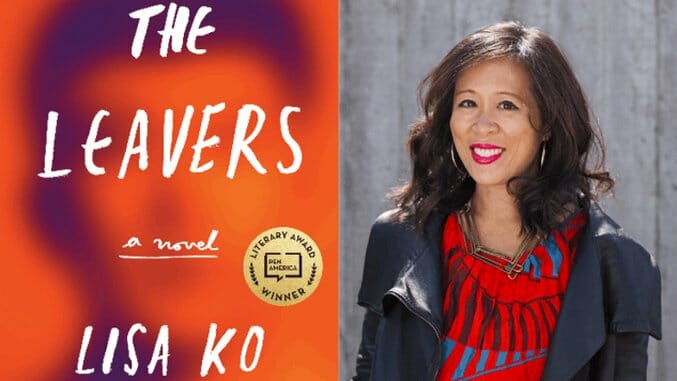Lisa Ko Talks Immigration, Fractured Families and The Leavers
Author photo by Bartosz Potocki
When author Barbara Kingsolver announced that Lisa Ko had earned the 2016 PEN/Bellwether Prize for Socially Engaged Fiction, she called Ko’s then un-published novel, The Leavers, “perfectly of this moment.”
Kingsolver made the announcement during a presidential campaign in which the eventual winner prided himself on bigoted, xenophobic behavior and promises of mass deportations. The Leavers examines the toll that a harsh approach to immigration policy exacts on families, revealing how destructive it can be when white Americans pressure immigrants to assimilate.
These issues are not new for immigrants, however, and Ko did not merely stumble upon the topic. The American-born daughter of Chinese immigrants from the Philippines, Ko started writing the The Leavers in 2009 and says the story felt just as germane back then.
“Immigration is always of this moment, because it’s the United States,” she says in an interview with Paste. “So anytime there’s some political or economic anxiety, immigrants become a scapegoat.” She adds that the nation’s current policies were in place during the last two presidencies, even if those administrations were not as overtly hostile to newcomers and minorities. “It happened more under the radar, but [deportation] was happening to tens of thousands of people every year. This has been timely for a very long time.”
In fact, The Leavers was inspired by an immigration story Ko read in the New York Times during the first year of President Barack Obama’s administration. The article profiled an undocumented Chinese immigrant who was arrested while traveling from New York to Florida for a restaurant job; the woman was detained for over a year, often in solitary confinement, so her son was placed in the foster care system. Ko began reading about the U.S. deporting parents while American-born children were kept behind, and she was stirred to write about a country that seemed to care so little about the well-being of these families.
Ko wrote a short story about an illegal immigrant named Polly who was arrested, but even after it was published in Narrative, she couldn’t let it go. “I got obsessed with idea of the son and what happened to him,” she says. “I was looking for a novel to write, but a lot of it was trying to figure out how the hell to write a novel. I didn’t plot it out; I just knew I had these two characters, the mom and the son, and that they would be separated.”
Ko churned out hundreds of pages trying to figure out the story. “It was inefficient, and I ended up writing many versions of the novel before cutting it down and finding the characters’ journeys,” she says. Ko also wanted to avoid writing an overtly polemical novel. “It’s political, but I want people to read it as a story. Then they can think about the issues of identity and assimilation and how those intersect with the larger issues and policies.”
-

-

-

-

-

-

-

-

-

-

-

-

-

-

-

-

-

-

-

-

-

-

-

-

-

-

-

-

-

-

-

-

-

-

-

-

-

-

-

-








































